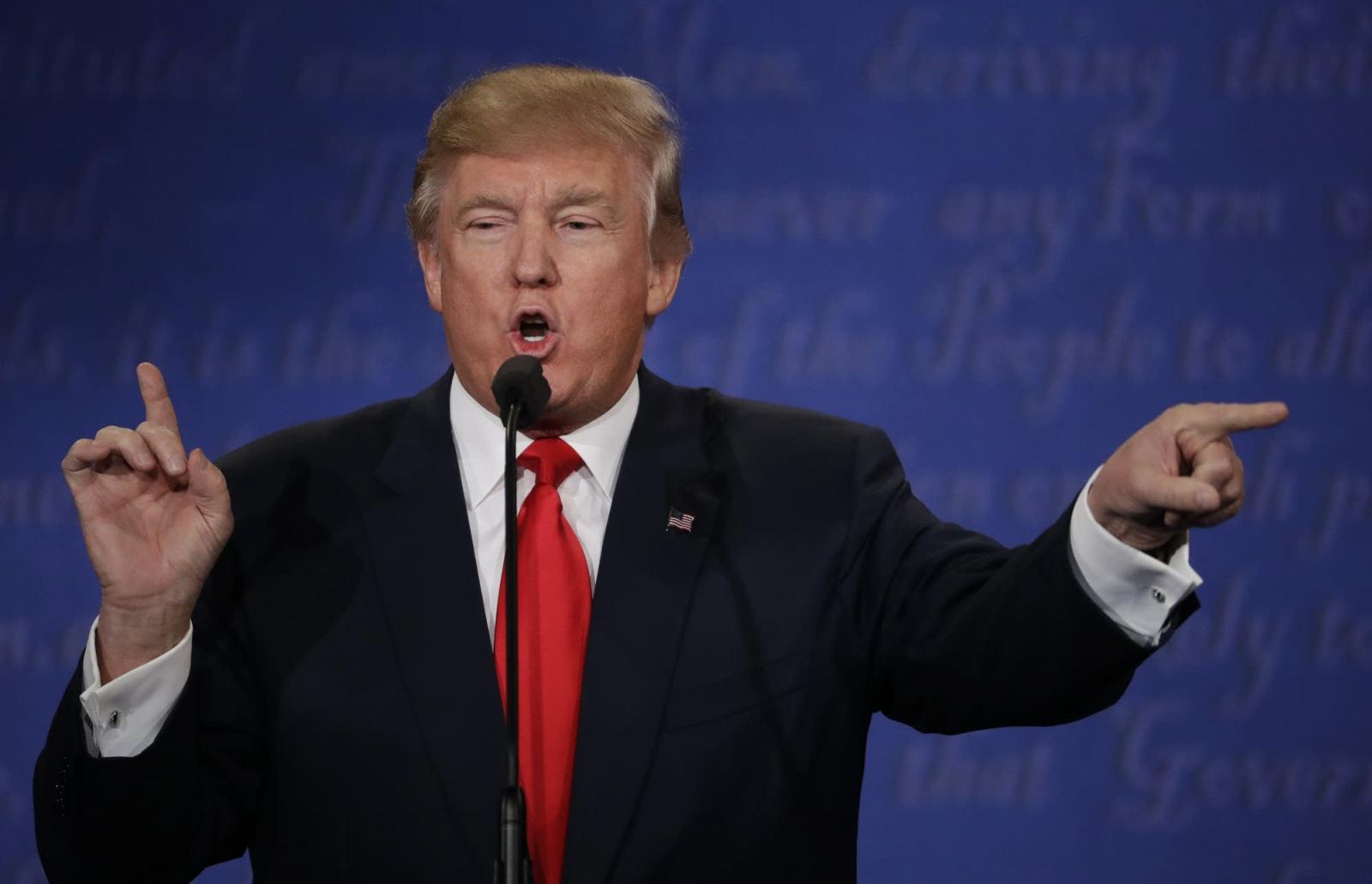In a typical presidential year, at least in modern times, the Commission on Presidential Debates (CPD) will schedule one vice presidential debate and three presidential debates. The dates and venues for 2020 have already been named, but the Trump campaign is pushing for the possibility of adding more debates to the schedule. In this case, it’s not just bluster. The President has created somewhat of a mini-taskforce to negotiate more debates and push for a greater say in the selection of debate moderators.
As Politico reports, Trump believes that more debates in the national spotlight will paint former vice president Joe Biden in a negative light and raise concerns over his stamina or mental capacity:
President Donald Trump’s reelection campaign has tapped former New York Mayor Rudy Giuliani to spearhead a campaign to press for more debates this fall, starting earlier than usual and to have a say in choosing the moderators.
The changes sought by the Trump campaign amount to a major reversal. Trump last year threatened to boycott the debates; now he wants more one-on-one encounters with presumptive Democratic presidential nominee Joe Biden, which advisers think will sow doubts about the former vice president’s stamina for the job.
Giuliani held a Thursday afternoon conference call with Trump campaign manager Brad Parscale and Frank Fahrenkopf, co-chairman of the nonpartisan Commission on Presidential Debates. During the call, Giuliani and Parscale pushed for the debates to begin before early voting starts. They also requested a fourth debate.
In response, the Biden campaign is dubious over adding more debates beyond the three already scheduled and says this is an effort by the president to distract from his own record:
“Six months after announcing he did not want to debate, Donald Trump — now trailing in the polls — wants to change the subject from his failed leadership, and launch a ‘campaign’ for many debates. But there’s a catch: he’ll only do it if he can pick the moderators,” said Deputy Campaign Manager Kate Bedingfield. “We will make this simple: like every other Democratic and Republican candidate since 1992, we will show up for the debates set by the Commission on Presidential Debates, at the places they have selected, on the dates they have selected, with the formats and moderators they designate — so long as Donald Trump does the same, and does not intimidate the Commission into changes from past practices.”
It seems unlikely that a fourth debate would be added unless both campaigns agree to it. If Biden’s campaign says “No,” there isn’t much Trump can do. The venue selection and planning for these events are literally years in the making, with selections made based on the ability to accommodate a three-day media circus, a national television broadcast, and hundreds of news agencies.
Debate moderators, on the other hand, is an area where the President might have more input compared to adding more debates. Both campaigns tend to negotiate over moderators and both campaigns must agree on the list.
Some media analysts are taking the Trump campaign’s desire for more debates as a sign the President thinks he’s currently losing his re-election bid:
The effort, which is being led by none other than former New York City Mayor Rudy Giuliani, amounts to the most clear evidence yet that — despite all of his public bluster — the President knows he is losing right now.
Remember that as recently as last December, Trump was contemplating sitting out the general election debate season entirely.
So how did we get from there to here? Simple. Trump’s political fortunes have declined significantly in recent months, with his uneven handling of the protests that arose in the aftermath of the death of George Floyd last month tanking his poll numbers.
Conventional political wisdom dictates that the candidate pushing for more debates is the candidate who is trailing. That person needs debates to create a moment (or moments) that can change the momentum and trajectory of the contest.
It’s usually the challenger pushing for debates, not the incumbent. If anything, the incumbent would usually prefer to debate less, or in many cases, not at all. This is especially true in races where an incumbent risks raising the profile of his or her challenger by appearing on the same stage.
Joe Biden has a national profile already, and there are already planned debates, but the Trump campaign believes more debates are bad for Biden. Based on the President’s own record, however, more is not always better. In fact, it became clear and arguable that the ongoing daily Coronavirus Task Force press briefing started to lose its luster day after day, sometimes producing awful soundbites for the President.
Biden is somewhat of a gaffe machine, but Trump is also perfectly capable of talking himself into a corner. The objective way to look at this is that both candidates probably would prefer to debate as little as possible.
It’s quite likely that Trump knows he won’t get more debates, but the effort will be used as a talking point against Biden. “The President called for more debates, a more robust dialog, but the Biden campaign is afraid to debate.” You can write the talking points blindfolded.
The likelihood is that we will have the three presidential debates and one vice-presidential debate as scheduled:
- Sept. 29 at the University of Notre Dame in Indiana
- Oct. 7 at the University of Utah in Salt Lake City (Vice Presidential)
- Oct. 15 at the University of Michigan
- Oct. 22 at Belmont University in Nashville
Follow the 2020 President Debate page for all the latest information.
Donate Now to Support Election Central
- Help defend independent journalism
- Directly support this website and our efforts
